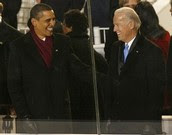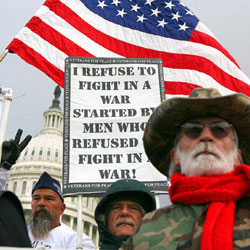Well, actually, I do have something to add to the post below:
*_*_*
The ‘religion’ that I adhere to is not a dogmatic religion, as such. It’s more a belief system that I study.
It recognizes the evolution of the soul through reincarnation. The youngsters on earth at the moment [infant and baby souls] are becoming more and more in the minority as the planet matures and fewer and fewer souls are choosing to start their physical training here. The planet is looking tired—there’s a lot of work to do to rescue it from human intervention—and other, fresher planets are beckoning. But, those who’ve opted to start here are in it, most likely, for the long haul.
Anyhow, see if any of this sounds familiar:
Baby souls are, generally, very very sure of themselves. They see the world in black and white. Shadings of gray don’t come into the mix until they reach the mid to late stages of the young phase of existence.
Babies hold a ‘my way or the highway’ mentality. ‘You’re with us or you’re with the terrorists,’ is a very baby thing to say. Holding the view that patriotism consists of believing exactly what you’re told by the authorities is also a baby characteristic.
Rules are important—though not always followed by babies. They’re especially important for others to follow. Pretty much, though, babies follow their leaders without question. When they’re in a leading role, they expect to be followed unquestioningly, as well. If someone does raise a question they’re met with surprise and even hostility.
Now, don’t jump to conclusions. Baby souls aren’t bad any more than toddlers are bad. They’re simply inexperienced—just as baby personalities are. They need firm, mature hands to guide them and protect them. If they don't receive good guidance they can cause a lot of grief—even if they're not in positions of authority.
It’s extremely rare for baby souls to rise to political heights as Bush has done. Mostly, they prefer to be big fish in a small pond. The mayor or police chief of a small town or a cop walking a beat are more common venues for baby souls who reach for power.
And our jails and prisons house people of every soul age [infant, baby, young, mature and old] but the vast majority are younger rather than older. Again, their inexperience tends to get them into trouble.
Bush was more competitive than most, though. He got the Big Job—
If he is, as I’m guessing, a baby soul—he’s out of his depth. And, again because of his inexperience, he preferred to surround himself with yes-people rather than folks who could thoughtfully guide him in his decision making. As a result, the planet is in a world of trouble.
May we please choose a more mature soul at our next election. Luckily—as I mentioned earlier—babies don’t often aspire to high office.
And, believe me, more mature souls can cause a lot of damage, too. So, just because a candidate can see shades of gray doesn't necessarily mean we'll be out of the woods. It still falls to us to elect someone who can not only see the big picture but will act appropriately. After all, Nixon was [I think] a mature soul.
And Carter is old. He made mistakes when he was president, too—though he’s done great good since. And, arguably, he did much less harm while in office.
October 30, 2006
October 28, 2006
Is The President On Another Planet?
I certainly can't improve on this--so I'm simply passing it on
*_*_*
Eugene Robinson – Op Ed columnist: Washington Post
For a moment there, I was almost encouraged. George W. Bush, the most resolutely incurious and inflexible of presidents, was reported last week to have been surprised at seeing Iraqi citizens -- who ought to be grateful beneficiaries of the American occupation, I mean "liberation" -- demonstrating in support of Hezbollah and against Israel.
Surprise would be a start, since it would mean the Decider was admitting novel facts to his settled base of knowledge and reacting to them. Alas, it seems the door to the presidential mind is still locked tight. "I don't remember being surprised," he said at his news conference yesterday. "I'm not sure what they mean by that."
I'm guessing "they" might mean that when you try to impose your simplistic, black-and-white template on a kaleidoscopic world, and you end up setting the Middle East on fire, either you're surprised or you're not paying attention. But that's just me.
As for George Bush, what on earth is on his mind?
Even conservatives have begun openly assessing the president's intellect, especially its impermeability to new information. Cable television pundit Joe Scarborough, a former Republican congressman, devoted a segment of his MSNBC show to "George Bush's mental weakness," with a legend at the bottom of the screen that impertinently asked: "IS BUSH AN 'IDIOT'?"
It's tempting to go there, but I'm not sure we'd get very far. While we have the president on the couch, I'm more interested in trying to understand his emotional response -- or lack of response -- to the chaos he has spawned.
According to the Iraqi government, 3,438 civilians were killed in July, making it the bloodiest month since the invasion. The president was asked yesterday whether the failure of the U.S.-backed "unity" government to stem the orgy of sectarian carnage disappoints him, and he said that no, it didn't. How, I wonder, is that possible? Does he believe it would be a sign of weakness to admit that the flowering of democracy in Iraq isn't going exactly as planned? Does he believe saying everything's just fine will make it so? Is he in denial? Or do 3,438 deaths really just roll off his back after he's had his workout and a nice bike ride?
"I hear a lot of talk about civil war" in Iraq, he allowed -- much of it apparently from his own generals, who have been increasingly bold in using the once-forbidden phrase -- but all that talk doesn't seem to penetrate very far. To the president, is all the bad news from Iraq just "talk" without objective reality?
Here's another line from the president's news conference: "What's very interesting about the violence in Lebanon and the violence in Iraq and the violence in Gaza is this: These are all groups of terrorists who are trying to stop the advance of democracy."
Now, whatever you think about George Bush's intellect, he knows full well that the Hamas government in Gaza was democratically elected. He also knows full well that Hezbollah participates in the democratically elected government of Lebanon, or what's left of Lebanon. And so he has to know full well that U.S.-backed Israeli assaults on Gaza and Lebanon -- even if you believe they were justified -- had the impact of crippling, if not crushing, two nascent democracies of the kind the Bush administration wants to cultivate throughout the Middle East.
He also knows that the Iraqi government has real sovereignty over only the Green Zone in Baghdad -- a fortress made secure by the presence of U.S. troops -- and assorted other enclaves where American and British troops enforce the peace. He has heard the leader of that nominal government praise Hezbollah and denounce Israel.
So when the president lauds democracy as the magic elixir that will cure the scourge of terrorism, is he really putting faith in his favorite mantra rather than his lying eyes? Is his view of the world so unchangeable that he dismisses actual events the way he dismisses mere "talk''?
Or is he just trying to hold on until January 2009, when all this will become somebody else's problem?
In his news conference, the Decider did make a couple of nods to objective reality. He admitted in plain language that Iraq had nothing to do with the Sept. 11 attacks and possessed no weapons of mass destruction -- in other words, that his rationale for this elective, preemptive war had no substance. And he acknowledged a certain occasional exasperation.
"Frustrated? Sometimes I'm frustrated. Rarely surprised," the president said. "Sometimes I'm happy. This is -- but war is not a time of joy. These aren't joyous times."
No, they're not.
*_*_*
Eugene Robinson – Op Ed columnist: Washington Post
For a moment there, I was almost encouraged. George W. Bush, the most resolutely incurious and inflexible of presidents, was reported last week to have been surprised at seeing Iraqi citizens -- who ought to be grateful beneficiaries of the American occupation, I mean "liberation" -- demonstrating in support of Hezbollah and against Israel.
Surprise would be a start, since it would mean the Decider was admitting novel facts to his settled base of knowledge and reacting to them. Alas, it seems the door to the presidential mind is still locked tight. "I don't remember being surprised," he said at his news conference yesterday. "I'm not sure what they mean by that."
I'm guessing "they" might mean that when you try to impose your simplistic, black-and-white template on a kaleidoscopic world, and you end up setting the Middle East on fire, either you're surprised or you're not paying attention. But that's just me.
As for George Bush, what on earth is on his mind?
Even conservatives have begun openly assessing the president's intellect, especially its impermeability to new information. Cable television pundit Joe Scarborough, a former Republican congressman, devoted a segment of his MSNBC show to "George Bush's mental weakness," with a legend at the bottom of the screen that impertinently asked: "IS BUSH AN 'IDIOT'?"
It's tempting to go there, but I'm not sure we'd get very far. While we have the president on the couch, I'm more interested in trying to understand his emotional response -- or lack of response -- to the chaos he has spawned.
According to the Iraqi government, 3,438 civilians were killed in July, making it the bloodiest month since the invasion. The president was asked yesterday whether the failure of the U.S.-backed "unity" government to stem the orgy of sectarian carnage disappoints him, and he said that no, it didn't. How, I wonder, is that possible? Does he believe it would be a sign of weakness to admit that the flowering of democracy in Iraq isn't going exactly as planned? Does he believe saying everything's just fine will make it so? Is he in denial? Or do 3,438 deaths really just roll off his back after he's had his workout and a nice bike ride?
"I hear a lot of talk about civil war" in Iraq, he allowed -- much of it apparently from his own generals, who have been increasingly bold in using the once-forbidden phrase -- but all that talk doesn't seem to penetrate very far. To the president, is all the bad news from Iraq just "talk" without objective reality?
Here's another line from the president's news conference: "What's very interesting about the violence in Lebanon and the violence in Iraq and the violence in Gaza is this: These are all groups of terrorists who are trying to stop the advance of democracy."
Now, whatever you think about George Bush's intellect, he knows full well that the Hamas government in Gaza was democratically elected. He also knows full well that Hezbollah participates in the democratically elected government of Lebanon, or what's left of Lebanon. And so he has to know full well that U.S.-backed Israeli assaults on Gaza and Lebanon -- even if you believe they were justified -- had the impact of crippling, if not crushing, two nascent democracies of the kind the Bush administration wants to cultivate throughout the Middle East.
He also knows that the Iraqi government has real sovereignty over only the Green Zone in Baghdad -- a fortress made secure by the presence of U.S. troops -- and assorted other enclaves where American and British troops enforce the peace. He has heard the leader of that nominal government praise Hezbollah and denounce Israel.
So when the president lauds democracy as the magic elixir that will cure the scourge of terrorism, is he really putting faith in his favorite mantra rather than his lying eyes? Is his view of the world so unchangeable that he dismisses actual events the way he dismisses mere "talk''?
Or is he just trying to hold on until January 2009, when all this will become somebody else's problem?
In his news conference, the Decider did make a couple of nods to objective reality. He admitted in plain language that Iraq had nothing to do with the Sept. 11 attacks and possessed no weapons of mass destruction -- in other words, that his rationale for this elective, preemptive war had no substance. And he acknowledged a certain occasional exasperation.
"Frustrated? Sometimes I'm frustrated. Rarely surprised," the president said. "Sometimes I'm happy. This is -- but war is not a time of joy. These aren't joyous times."
No, they're not.
Subscribe to:
Comments (Atom)
































